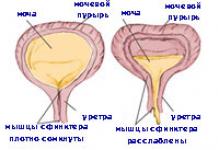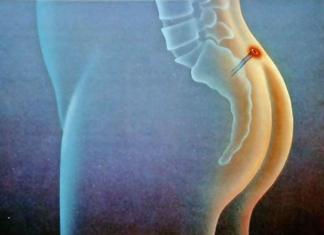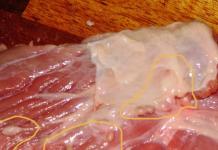He was sentenced to seven years in prison. In addition, the Pechersky District Court of Kyiv decided to recover about $189.5 million from the convicted person in favor of the Naftogaz company, and also banned her from holding positions in the civil service for three years. The opposition leader was taken out of the courtroom without handcuffs.
ON THIS TOPIC
The verdict of the former head of the government of Ukraine was announced by presiding judge Roman Kireev. The seven-year prison term begins on August 5, when Yulia Tymoshenko was arrested. Themis' servants considered her guilt fully proven and satisfied the demands of the Prosecutor General's Office in full.
In addition to awarding a prison term, the court approved the decision in the civil suit of Naftogaz, ruling recover from the former chairman of the cabinet an amount approximately equal to $189.5 million– such losses from Tymoshenko’s actions were indicated in the “affected” company.
The ex-prime minister herself, after the announcement of the court verdict, stated that she did not agree with the sentence passed on her and would appeal the decision to the European Court. She said that she does not expect justice in her country. According to Tymoshenko, with her sentencing, 1937 returned to Ukraine. Nevertheless, the former head of government stated that she intends to continue to fight the regime of President Yanukovych. "The verdict won't stop me",” RIA Novosti quotes her as saying.
The court's decision caused a wave of indignation among supporters of the ex-prime minister, in particular members of the Batkivshchyna party. There are clashes in Kyiv. It is reported that several people were detained by police on Khreshchatyk. Along with this decision of the district administrative court, mass rallies are prohibited in the central part of the Ukrainian capital on October 11 and 12. Such measures were taken after the opposition sent a request to hold a rally on the day the verdict was announced against the former Prime Minister of Ukraine. Representatives of the Batkivshchyna party announced that they would carry out the planned action regardless of the court decision.
Let us recall that Yulia Tymoshenko was accused of exceeding her authority when concluding contracts with Russia for gas supplies. The prosecution argued that the former prime minister personally approved the guidelines for the agreement and demanded a sentence of seven years in prison. The process lasted three and a half months.
It’s hard to call her an inexperienced politician, although the phrases she uttered sometimes baffle interviewers with their low culture. She has her own electorate, and by creating an image, she strives to correspond to their ideas about what a spokesman for the interests of this part of Ukrainian society should look like.
Long history
In March 1995, the charter plane on which the “gas princess” was flying made an emergency landing in Zaporozhye, before reaching which it was not accepted due to weather conditions. Customs, having searched the plane, discovered a large amount of foreign currency, and the Tymoshenko spouses had to spend a couple of nights in the prison of this city until they were rescued by Pavel Ivanovich Lazarenko, a great family friend and prime minister. Soon, the Unified Energy Systems of Ukraine was created - a corporation that absorbed the entire gas market. It is difficult to calculate how many billions of dollars this structure has withdrawn from the country, and no one today sets such a task.
After Lazarenko, he was also arrested right hand- the head of the UESU in 2001? The answer to this question should be sought in the case of the ex-prime minister, who languished in American dungeons for many years. This couple was bound by common business interests, and the fact that the assistant was only following instructions does not in any way justify her.

Tymoshenko and Yushchenko
In 2005, Tymoshenko was removed from her post as prime minister; she could not find a common language with Viktor Yushchenko, who largely owed her his victory during Many people at that time perceived this step of the Ukrainian president as black ingratitude.
The ex-prime minister's further opposition struggle consisted mainly of criticism of the pro-Russian actions of the government formed by Viktor Yanukovych; its main leitmotif was the line towards comprehensive Ukrainization and a course towards European integration, associated by part of the electorate with independence. Calls for strengthening national cohesion were heard from prison dungeons.
Since 2005, Tymoshenko has repeatedly expressed disagreement with the legal side of natural gas supplies to Ukraine. The intermediary company through which the purchases took place was called RosUkrEnergo and belonged to three owners: Gazprom (50%) on the Russian side and Firtash (45%) with Fursin (5%) on the Ukrainian side. For some reason, President Yushchenko lobbied for this order of trade relations, and on this basis he had a conflict with the prime minister. This situation lasted until 2008, when NJSC Naftogaz of Ukraine became the direct buyer. This happened due to RosUkrEnergo’s failure to pay the debt for 4 billion cubic meters of gas received at the end of 2007.

Everyone ran away - she's working
The position of President Viktor Yushchenko is interesting, who gave direct instructions to curtail all negotiations, not to sign a new contract, and thereby called into question the economic security of the country. In October 2008, with a debt of $2.2 billion and no agreements, the prospect of a complete shutdown of gas supplies to Ukraine was quite realistic. The signing of the contract was scheduled for the last day of 2008. All the country's leaders distanced themselves from the conflict. The Ukrainian establishment’s opposition to direct deliveries without intermediaries was also noted by the Russian side. As a result, from January 1, 2009, the valve was closed.

Signing and terms of the contract
On January 18, the memorandum was nevertheless signed. On the Russian side, V.V. Putin participated in its adoption, and on the Ukrainian side, Yulia Timoshenko. Why did they imprison her, who took upon herself the responsibility of negotiating with Moscow, while the rest of the leadership was resting, celebrating the New Year and Christmas? There was a reason. The conditions were considered enslaving, and the price was unprecedentedly high (up to $376 per 1000 cubic meters).
The criminal case was opened during the reign of President Yushchenko, so its further consideration under Yanukovych cannot be qualified as political reprisal against a patriot carried out by the “pro-Kremlin” regime. From the point of view of interests Russian Federation It is difficult to overestimate the service that Yulia Tymoshenko provided to Moscow. The term of imprisonment imposed as punishment was seven years.

Considering all the circumstances under which the gas agreements were signed, it would be difficult to indicate why Tymoshenko was imprisoned. Yulia Vladimirovna flew to Moscow for the reason that no one else could do this or did not want to. Ukrainian-Russian relations have reached a dead end due to the inconsistent and hostile policies pursued by the Yushchenko administration, constant threats of the country joining NATO and the refusal of good neighborly relations. If Viktor Andreevich had risked flying to Belokamennaya for negotiations, both Putin and Medvedev would hardly have talked to him, not to mention any successes. There was also no expectation that the valve would open by itself. Only Yulia Tymoshenko could somehow resolve the situation. Why did they put her first at the negotiating table, and then in Kachanovskaya? Was she a political prisoner? Could it have been done differently? There are many questions, few answers.

Liberation Day
But nothing lasts forever. The next Maidan, which happened in Kyiv in 2013, brought to power representatives of the Batkivshchyna party, whose leader is Yulia Tymoshenko. Why the ex-prime minister was imprisoned is no longer important; from the very first days of the confrontation, he actively supported the pro-European movement, from behind bars calling on the rebels to fight to the end, not sparing their own lives. And these war cries were heard.
Yulia Tymoshenko was released on February 22, 2014, immediately after Yanukovych fled Ukraine. The return was triumphant and was accompanied by picturesque raising of arms, rolling of eyes and posing with a crutch propping up legs weakened from constant lying, shod in high-heeled shoes. At the reception at the American Embassy, a healing generally occurred, albeit short-lived and explained, obviously, by the special miraculous atmosphere of this institution.
Despite the fact that now nothing prevents the investigation of the crimes of the “bloody regime of Yanukovych,” the new revolutionary authorities are in no hurry to deal with the circumstances of the case in which Yulia Tymoshenko was convicted. Why she was imprisoned is now unimportant, but the main contender for the presidential mace, Petro Poroshenko, has already politely asked the rebellious lady not to take away some of the voters from him. He believes that if the forces calling themselves democratic come up with one candidate, then victory can be won in the first round. Klitschko agreed. Lady Yu could not be persuaded.
Yulia Tymoshenko - “Lady Yu”, “Iron Lady”, “Gas Princess”, “Icon of the Orange Revolution” and simply “the lady with a braid”, who has become one of the most famous women in the world over the last decade. She gained fame and popularity as Prime Minister of Ukraine, which made her the country's main political prisoner.
The biography of Yulia Tymoshenko is filled with many unsolved secrets, but this does not prevent the female politician from confidently moving through all obstacles to the heights of power, showing perseverance, willpower and unbending character.
Childhood and youth
Yulia Vladimirovna Timoshenko (nee Grigyan) was born under the zodiac sign Sagittarius, on November 29, 1960 in the city of Dnepr (formerly Dnepropetrovsk), the regional center of Ukraine. Her parents divorced when Yulia was still a 3-year-old child. Father Vladimir Abramovich left the family, so the future Prime Minister of Ukraine was raised only by her mother Lyudmila Nikolaevna Telegina, who worked as a dispatcher in a taxi company.

The nationality of Yulia Tymoshenko remains an open question to this day: all of her paternal ancestors were Latvians, and her maternal ancestors were Ukrainians. The politician's childhood was spent in difficult living conditions, there was not enough money, but her mother managed to surround her daughter with love and care.
At school, Julia showed no interest in science. Teachers say that she studied without C grades, but was not an excellent student either. In her youth she was engaged in rhythmic gymnastics, and therefore she was predicted to have a career in sports. In high school, Tymoshenko decided to change her last name. She took her mother’s last name, so in her graduation documents the schoolgirl is called Yulia Telegina.

After school, the “iron lady” of Ukrainian politics entered the Dnepropetrovsk Mining Institute, the Faculty of Automation and Telemechanics, but due to poor academic performance she was expelled from the first year. Then she decided to try her hand in a different direction and became a student at the Faculty of Economics of Dnepropetrovsk State University, from which she graduated with honors.

In 1999, Tymoshenko defended her dissertation on the topic “State regulation of the tax system” and became a candidate of economic sciences.
Business
In her youth, Tymoshenko begins to become interested in business. The girl’s working life began at the Dnepropetrovsk Machine-Building Plant, as an engineer-economist. At that time, already married to Alexander Timoshenko, Yulia Vladimirovna opened a video rental store, for which she had to borrow money from friends.

Having earned her first money, Tymoshenko organized the Terminal youth center, which was supposed to sell petroleum products. This required initial capital, and “Lady Yu’s” father-in-law invested in the business. This is how Yulia Vladimirovna burst into the world of business against the backdrop of the collapse of the country’s economic infrastructure in the early 90s.
Already in 1995, the Terminal cooperative, with the support of the then-current governor of the Dnepropetrovsk region, Pavel Lazarenko, grew into the Ukrainian-British industrial and financial corporation “Unified Energy Systems of Ukraine” (UESU) with a turnover of $10 billion. The structure was headed by the “gas princess”. At that time, it had a monopoly on the sale of Russian gas in Ukraine.

In 1996, the UESU suffered great political and financial difficulties, which prompted Yulia Vladimirovna to enter the political arena.
Policy
In 1997, she became a people's deputy and occupied a leading position in the Hromada party. In 1999, Tymoshenko created the All-Ukrainian Association “Batkivshchyna”, at the head of which she entered the government. Then she is appointed Deputy Prime Minister for fuel and energy issues in the cabinet. Julia immediately showed herself in such a way that she fell out of favor with many politicians and businessmen in the country.

As a result, in 2000, Alexander Timoshenko, her husband, was arrested, and a year later Yulia Vladimirovna herself already ended up in a pre-trial detention center. The couple was accused of smuggling Russian gas to Ukraine and tax evasion. Later, the Kiev court recognized the charges against Tymoshenko as unfounded, as a result of which the “gas princess” was released from custody, and after some time her husband was also released, closing all criminal cases under the UESU.

Then “Lady Yu” again continued her political activities and until 2005 raised the level of popularity among the population at the head of the opposition action “Ukraine without Kuchma.” At the same time, she came out in support of the future Ukrainian President Viktor Yushchenko and became the leader of the Orange Revolution. This allowed her to become the Prime Minister of Ukraine.
In September 2005, Yushchenko dismissed Tymoshenko's government due to internal conflict between the branches of government, which caused a mixed reaction among Ukrainian politicians. However, her reputation is growing stronger around the world, and the American financial and economic magazine Forbes calls Yulia Tymoshenko the third most influential woman on the planet.

Yulia Vladimirovna does not give up and continues to stubbornly strive to reach the upper echelons of power. In 2006, the Tymoshenko Bloc overtook the Party of Regions in the parliamentary elections, gaining more than 22% of the vote. Thus, the “orange coalition” took more than half of the seats in the Verkhovna Rada. The new political formation also received the bulk of government portfolios, and Yulia Vladimirovna became the main oppositionist in the country.
In 2007, in early elections to the Verkhovna Rada, the BYuT party improved its position, which gave Tymoshenko the opportunity to once again receive the post of prime minister of the country.
 "Signature" hairstyle of Yulia Tymoshenko
"Signature" hairstyle of Yulia Tymoshenko The second premiership of the “Iron Lady” took place during a period of a large-scale global crisis, but she managed to prevent major disasters in the economy. Her actions made it possible to avoid default in the country, support the mining and metallurgical complex and production, prevent delays in the payment of wages to public sector employees and social payments to pensioners, maintain the stability of tariffs for housing and communal services, in particular for gas, carry out the privatization of land plots and close the illegal gambling business.

During this period, Yulia Tymoshenko became the main figure in the gas conflict between Russia and Ukraine. Then Ukrainian-Russian relations reached a dead end, and the “gas princess,” the only one from Yushchenko’s government, had to save the situation, for which she soon ended up in prison. She was accused of providing a disservice to the country, since the gas supply agreement was signed on enslaving conditions and at an unprecedentedly inflated price. Soon, Yulia Tymoshenko's negotiations with the President of the Russian Federation will radically affect her rating.

Before prison, Yulia Tymoshenko managed to participate in the 2010 presidential elections, where she lost only a few percent of the votes to her rival, who became the head of Ukraine. After this, Tymoshenko’s government was declared no-confidence, she was dismissed, and the post of prime minister was taken by Yanukovych’s comrade-in-arms.
Since May 2010, the “iron lady” of Ukraine began to reap the fruits of her activities: the Prosecutor General’s Office opened several criminal cases against the politician. The most notorious case was the gas contract with Russia, as well as the purchase of cars for rural medicine and “Kyoto money”, which she allegedly misused, causing damage to the state in the amount of €380 million.

In October 2011, the Pechersky Court of Kyiv sentenced Tymoshenko to 7 years in prison with compensation to the state in the amount of $189 million. This decision of the courts caused sharp criticism in the international community, which considers the criminal prosecution of the former Prime Minister of Ukraine to be politically motivated. Tymoshenko went to serve her sentence in the Kachanovskaya colony in Kharkov.
Tymoshenko's stay in prison from the first days was filled with unpredictability and mystery. A seemingly healthy woman began to state in an interview that she felt unwell and had bruises on her body, and the lawyers reported that their client was poisoned.

Later, Yulia Vladimirovna began to move poorly due to severe pain in back. Tomography revealed intervertebral hernia, chained a woman to a wheelchair. At the same time, in 2013, in prison, Tymoshenko held 2 indefinite hunger strikes demanding that Yanukovych sign an agreement with the EU, but 12 days after the crowded Maidan addressed her, she agreed to stop the action.
After the bloody massacre on the main square of the Ukrainian capital and the deprivation of power from President Viktor Yanukovych in February 2014, a decision was made to release the famous political prisoner. The Verkhovna Rada decriminalized the article under which Yulia Tymoshenko was convicted, and on February 22, the “Iron Lady” was released.

Immediately after her release, the former Prime Minister of Ukraine entered the race for the presidency, but took second place, losing the main government post. Having failed to break through to power, Tymoshenko began to reform the Batkivshchyna party, took the position of an ardent critic of the current Ukrainian leadership and became Poroshenko’s main opponent.
In 2017, Yulia Vladimirovna is still active in politics. She does not give up hope of once again rising to the pinnacle of power and occupying leading positions in the state. Some prospects opened up when Tymoshenko’s rating went up significantly in 2016 against the background of the government’s failures, as well as the steady loss of positions by President Petro Poroshenko.

Her political rhetoric has not actually changed. Yulia Vladimirovna promises the population to reduce tariffs for housing and communal services, remove the corruption component in the structure of public administration, make the work of the energy industry system transparent, and also raise social standards.
Experts and political scientists back in 2017 predicted Tymoshenko’s victory in the next presidential elections, and the Batkivshchyna party gave the palm in voting for the Verkhovna Rada. Yulia began her election campaign long before the official start, criticizing the failures of inept statesmen, trying to provoke early elections to the country's parliament.
Other prominent figures in the Ukrainian political scene are also fighting for Lady Yu’s electorate. The leader of the “Radical Party” tried to win over some of Yulia Tymoshenko’s voters to his side, and earlier the ex-president of Georgia tried to influence the sympathies of Ukrainians. Political observers also call Yulia Tymoshenko’s main competitor, because the former Ukrainian Air Force pilot was previously a member of the Batkivshchyna party.
In March 2017, Yulia Vladimirovna demanded the resignation of the Groysman government, arguing this desire with economic circumstances. In addition, she accused the authorities of corruption and total surrender of Ukraine’s national interests when signing a memorandum with the IMF, which the country’s leadership never presented to the public.
 Donald Trump and Yulia Tymoshenko
Donald Trump and Yulia Tymoshenko Tymoshenko’s position in the political arena can be strengthened, because her trip to the United States, as well as a conversation with the American President, further reduced the trust in Poroshenko and Groysman on the part of foreign partners. Such a meeting of the leader of the Ukrainian opposition suggests that “Lady Yu” may receive support from the White House administration.
Personal life
Ukrainian society has always been interested in knowing about Yulia Tymoshenko’s men, but all her life there was only one lover next to “Lady Yu”. While still a student, she married Alexander Timoshenko, with whom she began her ascent to the heights of power. In 1980, the young couple had a daughter, Evgenia.

Later, the girl was married to British rocker Seann Carr. The loud wedding made an impression on Eugenia’s compatriots, but the marriage lasted only 8 years, without giving the couple any children. After the divorce, Tymoshenko Jr. became the wife of Ukrainian businessman Arthur Chechetkin. The couple had a long-awaited daughter.
In the family of the former Prime Minister of Ukraine, roles were distributed according to vocation: the husband was engaged in business, and the charismatic wife devoted herself to politics. After the “gas scandal,” Tymoshenko’s husband also came under criminal prosecution, as a result of which he was forced to seek political asylum in the Czech Republic.

In addition to Tymoshenko’s politics and personal life, the electorate’s attention is paid to appearance"Icons of the Orange Revolution" Only the lazy don’t discuss Yulia Vladimirovna’s wardrobe and hairstyle, but she herself offers topics for conversation. For example, elegant outfits that fit her figure like a glove (the politician’s height is 163 cm, weight – no more than 70 kg).
The favorite feature of the most influential woman in Ukraine has always been a business suit in pastel colors and a tightly braided braid around her head, which she demonstrates in many photos in
Why is the American Themis on the hook of the leader of the Ukrainian opposition?
In May of this year, the Ukrainian government entered into an agreement with the American law firm Trout Cacheris to assess the financial and economic activities of government bodies for the period from 2008 to the first quarter of 2010, when the government was headed by Yulia Tymoshenko.
Trout Cacheris engaged the world-famous investigative agency Kroll, Inc. for its audit. and international law firm Akin Gump Strauss Hauer & Feld, LLP. After five months of hard work, an international audit revealed the misuse of 200 of the 300 million euros Ukraine received from Japanese companies in 2009 for the sale of designated greenhouse gas emission units. “(Senior officials) used these funds to conceal serious deficits in Ukraine's pension system shortly before the 2010 presidential elections,” the US company said in a press release. In addition, there are reports of “manipulation of contracts with sugar from the state reserve, as well as cases of unauthorized use of funds for a land registration program for political gain on the eve of the presidential elections.”
Mark McDougall, a partner at the American company Akin Gump Strauss Hauer & Feld, said at a press conference in Kyiv: “Large international structures were involved in this, because money laundering occurred through offshore banking structures... As a result of such activities, their awareness of these matters , tens of millions of dollars have left the Ukrainian budget.” “If you directly want to ask who received money and how much, you will find some answers in the report. And keep an eye on the lawsuits that have begun,” McDougal said. According to him, in the report one can easily see “a list of agreements that lead directly to Yulia Tymoshenko and other members of the government.”
The international audit data was confirmed by the audit of the state treasury by the Main Control and Audit Department, carried out in parallel. According to the Kyoto Protocol, proceeds from the sale of quotas must go to environmental programs. The KRU noted an illegal change in the intended purpose of the money received from the Japanese side, a violation of the provisions of the Law of Ukraine “On the State Budget of Ukraine for 2009”, a number of paragraphs of the Budget Code of Ukraine and other legislative acts regulating the use of these funds. The auditors found that the funds from the special budget fund from the sale of quotas in the amount of 2.324 billion hryvnia were not saved in the single treasury account, but were spent on current payments of the state and local budgets.
Thus, the Prime Minister violated not only national legislation, but also international law, in particular the provisions of Article 6 of the Kyoto Protocol, which caused irreparable harm to Ukraine’s international reputation.
Japanese-Ukrainian economic relations were frozen.
Today, Yulia Tymoshenko has been charged with the fact that she “acting deliberately, out of personal interests, decided to unilaterally decide to use part of the money received from the sale of greenhouse gas emission quotas and intended for the purpose of covering the expenses of the State Budget of Ukraine, primarily obligations for the payment of pensions." To which Tymoshenko stated that the investigation carried out by three American companies did not comply with the classical principles of auditing. The opposition, as if on cue, raised a cry for political repression. The Yulia Tymoshenko bloc is almost going to the bone in the irreconcilable struggle for the “freedom and independence” of its leader. The Byutists did not demonstrate such a desire to go to the end even during the battle against the ratification of the Kharkov Ukrainian-Russian agreements that they hated. Yulia Tymoshenko and her supporters pass over in silence the unsightly facts of manipulation of budget funds. And the Western world, which calls itself civilized, and to which the Ukrainian opposition has repeatedly called for help in defending democracy, it would seem, should have reacted differently.
But harsh statements followed one after another from Europe and the United States. The president of the European People's Party, influential in the European Parliament, Wilfried Martens, said that the party condemns the politically motivated actions of the Ukrainian authorities against the leader of the Batkivshchyna party, Yulia Tymoshenko. And the EPP statement emphasizes that the undemocratic behavior of the Ukrainian authorities could jeopardize the country’s European future. The US government, through the words of Charge d'Affaires of the US Embassy Eric Schultz, advocated a transparent investigation by the Prosecutor General's Office of the criminal case against Tymoshenko. Shultz did not give any comments on the case itself, since he considers it unethical to speak out about the internal political life of Ukraine, as if what he said above was not the most direct interference. However, for US foreign policy, double standards are commonplace, while NATO, as a rule, is more unceremonious. Harassment of opposition leaders and the media is a matter of serious concern, said Assen Agov, co-chairman of the Ukraine-NATO Inter-Parliamentary Council. And he noted that “the absence of parliamentary representatives from the Party of Regions at the meeting of the Ukraine-NATO Interparliamentary Council casts doubt on the sincerity of statements by the Ukrainian authorities about their interest in developing relations with NATO.” And the international anti-corruption network Transparency International has gone the furthest in its concern for Ukrainian democracy, where they stated that the “Washington audit” discredits the fight against corruption in Ukraine. The West clearly intends to take Yulia Tymoshenko under its “democratic” wing, and today we can already say that two fronts are opening against Yanukovych at once - internal and external. The first, by the way, was created and exists with the specific money of the second, and acts strictly according to his orders.
But now, even with the efforts of these two “fronts,” it is unlikely that it will be possible to again fashion Tymoshenko into the image of a national heroine or a victim of “political terrorism,” such a long criminal tail has been revealed by the international audit.
The published results of the activities of the former government of Yulia Tymoshenko turned out to be so amazing that they received a worldwide resonance. One of the most influential Western publications, the Wall Street Journal, quickly published its own material on this topic. The vectors of the most amazing case are connected with the activities of the industrial and financial corporation (PFK) “Unified Energy Systems of Ukraine” (UESU), led by Yulia Tymoshenko (1995-97), they stretch to different countries, but most of all to the USA. It was there that in 1999, former Prime Minister of Ukraine Pavel Lazarenko, who escaped from Ukrainian justice, was arrested (for money laundering).
In one of his interviews, ex-Deputy Prosecutor General and ex-Deputy Chairman of the Security Service of Ukraine Nikolai Obikhod said: “In July 2001, the US District Court in San Francisco reported in the indictment, in the chapter called “UESU Frauds”: “Starting in December 1995, the Ukrainian company EESU, founded by Yu. Timoshenko, an accomplice of Lazarenko (sic! - E. K.), was selected by the Ukrainian government as one of several suppliers of natural gas to Ukraine." The corporation's turnover, for example, in 1996 amounted to 10 billion US dollars (share in Ukrainian exports - 7%, share in exports from the Russian Federation - 14%). During the premiership of P. Lazarenko (1996-1997), UESU successfully used interest-free lending schemes for the concern to state-owned enterprises and was engaged in unauthorized re-export of Russian gas. In 1997, a quarter of the entire Ukrainian economy was under the control of Yu. Timoshenko's corporation. Not without the help of Lazarenko, of course. Subsequently, the Ukrainian authorities will call these connections corrupt, Tymoshenko will be charged with a number of charges in this regard, but the case will not go to trial, and in 2005 all criminal cases are closed. Yulia Vladimirovna again becomes white and fluffy, as she thinks.
However, in May of this year, Nikolai Obikhod said that “there is no court decision rehabilitating Yulia Tymoshenko.” And towards the end of his presidency, V. Yushchenko opened up in an interview with Radio Liberty: “How were criminal cases closed?.. Tymoshenko in 2005 began her premiership with one request to me: that I give the command to Malyarenko (then Chairman of the Supreme Court) close the criminal case for 8.6 billion hryvnia for unpaid taxes and penalties of the UESU, which was headed by the current prime minister... She begged Malyarenko, at my request, to close this case.” The Main Military Prosecutor's Office of the Russian Federation dropped the criminal case against Yulia Tymoshenko due to the expiration of the statute of limitations in December 2005.
The American Themis demonstrates the greatest integrity...
According to the press bureau of the newspaper "2000" and information posted on the newspaper forum, according to US District Court Case No. 1:04-cv-00798-PLF, Washington, DC, opened July 30, 2005 (claim against Pavel Lazarenko) , Yulia Tymoshenko is identified as an accomplice in the UESU and ITERA energy schemes and in making payments to Lazarenko in the amount of $162 million. Here are some excerpts from the indictment in his case:
"36. During Tymoshenko’s tenure (in the original material - Lazarenko) as Deputy Prime Minister for Energy, “Unified Energy Systems of Ukraine” (UESU, created and led by Tymoshenko. – E. K.) were a special corporation that had various privileges, including the authority to supply natural gas to the Dnepropetrovsk region. The UESU Corporation was under the control of Yulia Tymoshenko and other Lazarenko accomplices. From approximately December 1995 until 1997, UESU received natural gas from RAO Gazprom under contracts concluded under the authority of the corporation. In addition, on or about December 31, 1996, Prime Minister of Ukraine Pavel Lazarenko initiated the issuance of a state guarantee in the amount of US$200 million (the beneficiary was RAO Gazprom) for the supply of natural gas to the UESU, thus forcing the Ukrainian government to take UESU's debts to RAO Gazprom.
37. Beginning in January 1996, UESU Corporation transferred the rights to imported natural gas to United Energy International (UEIL), the owner of 85% of UESU shares. It was founded on October 17, 1995 by order of Yulia Tymoshenko. The company illegally directed payments received from Ukrainian customers for natural gas supplied by UESU to bank accounts owned by UEIL. From April 8, 1996 to December 31, 1996, instead of paying RAO Gazprom for gas supplied with money received by UEIL, UEIL transferred approximately $140 million to Somoli Enterprises, a Cypriot company registered in Cyprus on October 8, 1992, and located under the control of Yulia Tymoshenko and other persons.
38. Subsequently (1996-1997), Tymoshenko and her accomplices used enterprises controlled by them (not only UESU, UEIL and Somoli Enterprises) to make payments to Lazarenko in the amount of at least $162 million. Lazarenko received such funds thanks to his position as a government official in Ukraine."
After the resignation of the government of Yulia Tymoshenko in September 2005, President of Ukraine V. Yushchenko, in an interview with the Associated Press, accused Tymoshenko of using the position of prime minister to write off the debts of her former company, Unified Energy Systems of Ukraine, to the state budget in the amount of 8 billion hryvnia (1.6 billion dollars). And a few months earlier, in the office of the Moscow Carnegie Center, while discussing a report by economist Anders Åslund on the economic situation in Ukraine, Boris Nemtsov, a freelance adviser to President Viktor Yushchenko, said that he considered Yuri Tymoshenko “the most real and concrete enemy of Ukrainian statehood,” who “will soon destroy Ukraine,” and accused Tymoshenko of “inciting feelings of hatred among ordinary people towards small local oligarchs.” All these statements by both Nemtsov and Yushchenko had no continuation.
The assumption here that the dropping of charges against Yulia Tymoshenko was part of political agreements and bargaining, both internally and externally, looks very plausible.
In 2004, when the court decision in the Lazarenko case had not yet been made in the United States, there was information in the media that the charges relating to the UESU had been withdrawn from it. Today this information has actually been confirmed. Now it’s clear why Yulia Vladimirovna was such a hero on the Maidan.
In August 2006, in San Francisco, District Judge Martin Jenkins sentenced former Ukrainian Prime Minister Pavel Lazarenko to nine years in prison and a $10 million fine on charges of 14 counts of money laundering, attempted money laundering, wire transfer fraud, deception and extortion. . According to the Associated Press, American authorities estimate the amount of funds transferred by Lazarenko to the United States at $114 million. In 2000, Lazarenko was charged with 53 counts of extortion, money laundering and fraud. For 29 of them, a jury found him guilty in 2004. Jenkins rejected another 15 episodes for lack of evidence. Even so, Lazarenko was among the ten most corrupt world leaders, a list of which was presented by the World Bank at the UN headquarters in September 2007.
According to estimates, during the two years of his leadership of the government in 1996-1997. Lazarenko stole about $200 million, which amounted to up to 0.4% of Ukraine's gross domestic product.
But for some reason, the most scandalous episodes related to the activities of the Unified Energy Systems of Ukraine company disappeared from the indictment of the American court. People's Deputy of Ukraine Leonid Grach in October 2008 in the publication “Russian People's Line” made an unequivocal conclusion that “... she (Tymoshenko) can well count on the fact that she will become the main representative of Washington’s interests in the upcoming Ukrainian presidential elections " The parliamentarian had reasons to say so.
February 28 - March 2, 2007, the leader of the BYuT opposition bloc, Yulia Tymoshenko, whom Yushchenko removed from the post of prime minister back in September 2005, was on a visit to the United States. (This visit took place three months after Prime Minister Yanukovych visited the United States.) The main purpose of the visit, as stated by the main opposition force in the country, was to convey (!) to the American leadership that Yanukovych’s actions aimed at expanding cooperation with Russia in the energy sector could deprive Ukraine of economic independence. Tymoshenko met with Secretary of State Condoleezza Rice, President Bush's national security adviser Stephen Hadley and Vice President Richard Cheney. The way out of the situation, according to Tymoshenko, should be a change in the constitution and early parliamentary elections. Clearly not by simple coincidence, on April 2, 2007, Viktor Yushchenko signed a decree “On the early termination of the powers of the Verkhovna Rada.” The united opposition came out on the side of the president. A protracted political confrontation began, which ended in September with early parliamentary elections, as a result of which BYuT received 30.71% of the votes, increasing its representation in parliament by 27 deputy mandates (to 156).
But this, so to speak, is the consequences of the American visit of the eternal oppositionist. And on the eve of her overseas voyage, people's deputies from the Party of Regions, SPU and Communist Party read out in the Verkhovna Rada a letter to the US Ambassador to Ukraine W. Taylor with a request to confirm Tymoshenko's status in the Lazarenko case. The fact is that, a few days earlier, the UNIAN news agency published a message from the press attache of the US Embassy in Ukraine, John Sullivan, which noted the absence of charges against Yu. Tymoshenko and any investigations against her. Why was the diplomat so upset? Documents from the California District Court regarding the mutual participation of Pavel Lazarenko in the affairs of Yulia Tymoshenko, and vice versa, were published in the Ukrainian media. According to these documents, the court determined all statements by P. Lazarenko about the non-involvement of Yu. Tymoshenko, as the former head of the Unified Energy Systems of Ukraine (UESU), in the affairs of the former Ukrainian prime minister as unfounded. Thus, the United States recognized Yuri Timoshenko as an accomplice. The people's representatives decided to clarify the political and legal conflicts, the ends of which stretched to the banks of the Potomac.
On March 1, US Ambassador to Ukraine William Taylor officially announced that Yu. Tymoshenko was not included in the case of ex-Prime Minister Pavel Lazarenko in the United States. The response posted on the embassy’s website said, in part: “The criminal proceedings in Mr. Lazarenko’s case have been completed, and he has been found guilty. The court records in this case posted online should not be viewed out of context. They were used in the trial to collect the necessary evidence in the case of Mr. Lazarenko. Case is closed"(emphasis mine. - E. K.). It was on the basis of this statement by V. Taylor that Tymoshenko announced to the whole country and continues to declare that, “I am innocent, Lazarenko himself was convicted of the case!” In reality, everything is different. An official letter from the American Embassy states that Yu. Tymoshenko “was not a participant in the investigation or prosecution of Pavel Lazarenko,” but at the same time, the embassy did not reject the authenticity of “court materials in this case posted on the Internet,” pointing out that they "were used in the trial to collect the necessary evidence in the Lazarenko case."
Thus, the Americans practically declared that Yu. Tymoshenko was not brought to justice in the United States in the case of P. Lazarenko, but the very fact of her corrupt connection with the ex-prime minister appeared in the court materials.
And one more interesting detail. The new US Ambassador to Ukraine J. Teft also reported to Washington about Yulia Tymoshenko’s penchant for adventurism and manual control in his dispatch on February 24, 2010. These materials were released into the public domain by WikiLeaks. Moreover, the diplomat reported that Yulia Tymoshenko “will resist reforms.” It would be very interesting to know why the Americans, having brought the Lazarenko case to its logical conclusion based, by the way, on materials collected by Ukrainian law enforcement agencies on the UESU, prefer not to raise the issue of Tymoshenko’s offenses?
Today, Yulia Tymoshenko and her circle are terrified that all the negative information will become available to the wider domestic and international public. That is why they pose as victims of political repression. The USA and Europe not only do not object to such an unclean game, but also promote it. Today, it is useless to search for any materials on the websites of American courts about Tymoshenko’s involvement in the case of P. Lazarenko - they are not there (there is no access to the mentioned websites of the Ukrainian newspaper “2000”). Nikolai Obikhod recently gave advice to anyone who wants to know some, let’s say, juicy details from the life of Yulia Tymoshenko: “A wonderful help for the curious is the American resource system Public Access to Court Elektronic Records (PACER) - “Public Access to Court Electronic Documents” , providing not only US citizens, but also any foreigner with access to court case materials. These documents, even in the conditions of silence from the Ukrainian prosecutor’s office, reveal the true picture of the activities of a bunch of two partners: the so-called “Boss” - Pavel Lazarenko - and his talented student, the owner of “EESU” Yulia Tymoshenko, who far surpassed her mentor.” Let's add: this is a unique service that provides citizens of the United States and around the world (!) with access to court case materials and registry data (in electronic format) of the federal appellate court, district courts, bankruptcy courts, as well as the unified registry of US court cases and decisions . The Americans with their unsurpassed desire for “freedom of speech” missed something, oh, how they missed it! Is it a coincidence? Like in the sensational story with the WikiLeaks website, or what?
It became known that specific materials relating to Tymoshenko were removed from the case and are located... Apparently, exactly where they are supposed to be for the time being, in accordance with the geopolitical plans of the United States regarding Ukraine, the only orange leader in the vastness of which is all the same Yulia Tymoshenko. And it has no competitors. America is betting on her, and only on her. And she has kept it in reserve since the time when, in the 2004 presidential elections, transformed into the Orange “revolution,” she was assigned the role of Viktor Yushchenko’s backup. Now Tymoshenko has become an independent political figure. In 2007, during a visit to the United States, she received an award from the influential non-governmental organization Conservative Political Action Conference for her “contribution to the development of democracy.”
Today, the leader of the opposition party “Batkivshchyna”, ex-Prime Minister Yulia Tymoshenko can be nominated for the Nobel Peace Prize for 2011.
The website of the Segodnya newspaper reports this. According to a source close to the World Congress of Ukrainians, such an initiative could be made by the Ukrainian diaspora in the United States, as well as a group of American senators. “If pressure on the politician continues from the Ukrainian authorities, a decision will be made literally in the near future,” the message says. But the question of whether every thief should go to prison remains open.
Special for the Centenary
Why was Yulia Tymoshenko in prison and was she in prison at all?
- in January 2001 Ukraine;
- August 2001 Russia;
- May 2004 Ukraine;
- September 2004 Russia.
- Kyoto Treaty (violation of the use of earmarked funds);
- Purchase of Opel cars (abuse of official authority).
- On 10.2011, the verdict in the gas case was read out. Tymoshenko was convicted of abuse of power and must serve her sentence in a colony.
Yulia Tymoshenko really was in prison. The term was set to be quite decent - 7 years. And she was imprisoned for signing a contract with Russia for the supply of gas that was not beneficial for Ukraine. Due to such actions, Tymoshenko caused significant damage to a Ukrainian company called Naftogaz.
Such a charge, which was brought against Yulia Tymoshenko, can be brought against absolutely any person today. E was accused of concluding a bad deal with Russian Gazprom. I remember this time well. Yulia Tymoshenko simply had no choice.
Yulia Tymoshenko, indeed, was in prison. According to the verdict, the term was 7 years, the article was abuse of official powers. She served about 2 and a half years of this sentence and was constantly ill. European human rights activists constantly fought for her release. Yanukovych himself said that she had special conditions of detention. At the beginning of this year, the article under which Yulia Tymoshenko was convicted was decriminalized. And she was released from prison on February 22.
Yulia Tymoshenko seemed to be serving her sentence in prison, but when I saw video surveillance of the ward where Yulia Tymoshenko was being treated, to be honest, I saw the light! Unfortunately, I cannot provide you with a link to this video, because after several days, after going online for everyone to see, the video disappeared! Yulia Tymoshenko was lying alone in the ward. When there was no one in the room, she calmly moved around the room in high heels, twirled around the mirror, sat in the lotus position, and for quite a long time... Etc. Before they came in to pay, they always knocked. Before anyone came in, Julia quickly went to bed and pretended to die. So I believe that her imprisonment was not imprisonment at all! Yulka was imprisoned for causing enormous monetary damage to Ukraine.
Nobody knows whether Yulia Tymoshenko was actually imprisoned. One can only guess about this. But here she was, according to official data, for abuse of power.
The court decided that Tymoshenko, as prime minister, exceeded her powers by facilitating the conclusion of Ukrainian-Russian contracts on gas transit and supplies. According to the court, this led to government losses, represented by Naftogaz, amounting to more than one and a half billion hryvnia (about $189.5 million).
The court sentenced Yulia Tymoshenko to 7 years in prison, and also banned, or rather deprived her of the right, for three years after serving her sentence, to hold certain positions in the government. In addition, the court ordered Tymoshenko to compensate Naftogaz for damages in the amount of $189 million.
Let me remind you that Tymoshenko was imprisoned from 2011 to 2014.
Yes, ex-Prime Minister Yulia Tymoshenko was indeed in prison. For what? I'm more interested in the question: why only her? Almost the entire Verkhovna Rada could be put behind bars for their corruption. However, it was Tymoshenko who was imprisoned, for which they were imprisoned is not so important, since the reason would have been found in any case. She was an objectionable piece on the chessboard of the authorities and politicians of that time. I do not at all undertake to defend Yulia Tymoshenko, but I doubt the legality of this decision. The country was ruled by swindlers, and still is. And this has always been the case, and not only in Ukraine, when some politicians remove others from the road, some are physically eliminated, and some are put in prison, out of sight. But now Tymoshenko looks like a martyr, although I wouldn’t dare call her a saint.
Yulia Tymoshenko's sentence was set for signing an unprofitable gas contract with Russia. She did not spend very much time in the prison itself due to her worsening illness. There was a question about transferring her to a hospital in Germany, but the Duma did not sign the permission and Tymoshenko continued to be treated in a hospital in the city of Kharkov. Medical specialists from Germany were repeatedly invited there.
Yulia Tymoshenko was imprisoned for abuse of power, Viktor Yanukovych just recently said at his press conference that by her actions Tymoshenko caused damage to Ukraine by more than 200 billion dollars. As for the second part of the question, yes, she really was sitting near Kharkov.
Criminal cases brought against Yulia Tymoshenko before 2010:
All cases related to the activities of the EES in 1996-1997. (E E S U - unified energy systems of Ukraine).
The cases were closed in 2005 in Ukraine and Russia after the statute of limitations had expired.
In 2010, N. Azarov stated that the actions of the government of Yu. Tymoshenko caused damage to the state in the amount of 100 billion hryvnia and demanded the initiation of a criminal case.
Also in 2010, an audit of Tymoshenko’s Cabinet of Ministers was conducted for the period 2007-2010. Based on the results of the audit, 2 main violations were discovered for which criminal cases were opened:
In 2011, a criminal case was opened regarding the 2009 gas contract.
However, due to a sharp deterioration in her health, she spent more time in hospitals than in the Kharkov colony. The total term of imprisonment (pre-trial detention center, colony, hospital) was 2 years 6 months (approximately).
To date, Tymoshenko has been released from prison. The new government dropped charges against her in the gas case. However, according to some media reports, Shcherban’s case is still open (Tymoshenko is accused of ordering and paying Shcherban’s killer).
On October 11, 2011, former Prime Minister of Ukraine Yulia Tymoshenko was sentenced to 7 years for abuse of power, as it is officially called. In 2009, Tymoshenko signed an unfavorable contract with Russian Gazprom and thereby caused enormous damage to Naftogaz.
And she really was in prison, in the Kachanovskaya colony. The news showed footage of her, who was sick, asking for advice from German doctors.
Yes, Yulia Timoshenko I was in prison, but I would even say that Tymoshenko was all these years in a sanatorium called a prison. Tymoshenko received attention all the time and her every whim was fulfilled.
Initially Yulia Timoshenko sentenced to seven years in prison in 2009 for exceeding his authority when concluding an agreement on the supply of Russian gas and causing damage to Ukraine in the amount of 1.5 billion hryvnia. On that moment Yulia Timoshenko held the post prime minister minister of Ukraine.
Tymoshenko has a first criminal record, although several criminal cases had not been brought against her before that.
Well, in connection with the latest events in Ukraine Yulia Timoshenko was released early.


























